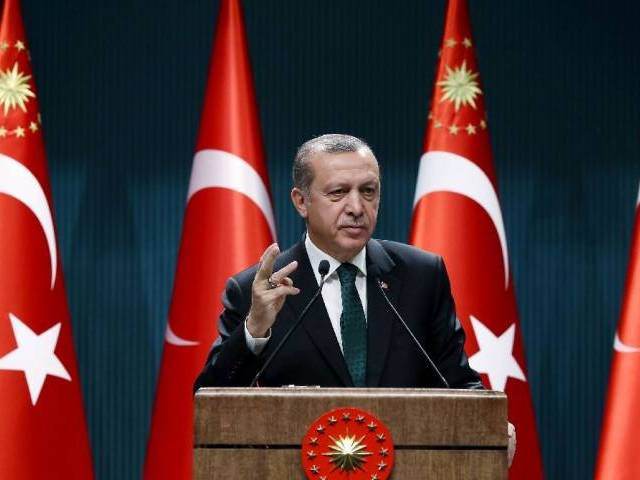Erdogan ousts Turkey's central bank governor after steep lira slide
Several officials say ousted governor held responsible for nosedive of lira, worst performer in emerging markets

Turkish President Tayyip Erdogan fired central bank governor Murat Uysal on Saturday and replaced him with ex-finance minister Naci Agbal, acting after a 30% plunge in the lira currency’s value to record lows this year.
The decision to replace Murat Uysal gives Turkey its fourth central bank governor in five years and could stoke longstanding criticism about political interference in monetary policy.
The presidential decree was announced in the early hours Saturday in Turkey’s Official Gazette and gave no reason for the surprise move. But several officials close to the matter said Uysal was held responsible for the nosedive of the lira, the worst performer in emerging markets this year.
“The rise in the exchange rate really exceeded expectations very rapidly. Some steps were expected to have an impact, but that didn’t happen,” one senior official said.
Analysts said that while Agbal is a close Erdogan ally, he is seen as a capable manager who could take a more orthodox approach to policy. That could ease concerns that have driven Turks to snap up hard currencies at record levels.
“Uysal’s leadership had been utterly disastrous. Agbal cannot be worse, surely. He had a reputation as a decent technocrat,” Timothy Ash at BlueBay Asset Management said on Twitter. “Agbal is actually qualified for the job.”
The lira has continued to slide on concerns over the central bank’s depleted FX reserves, negative real rates, monetary independence, and the risk of Western sanctions over Turkish foreign and defence policies.
Analysts also fear US-Turkish relations may come under more strain if Democrat Joe Biden defeats President Donald Trump in last Tuesday’s closely fought election, where the vote count has not been completed but is tilting Biden’s way.
Turkey, a G20 country and the largest economy in the Middle East, roared back from a recession last year on the back of surging domestic lending and state support for the lira - until it was hit hard by the Covid-19 pandemic.
Erdogan had appointed then-deputy governor Uysal to head the central bank in July 2019 after sacking predecessor Murat Cetinkaya, saying the bank had not cut interest rates to boost the economy.



















COMMENTS
Comments are moderated and generally will be posted if they are on-topic and not abusive.
For more information, please see our Comments FAQ